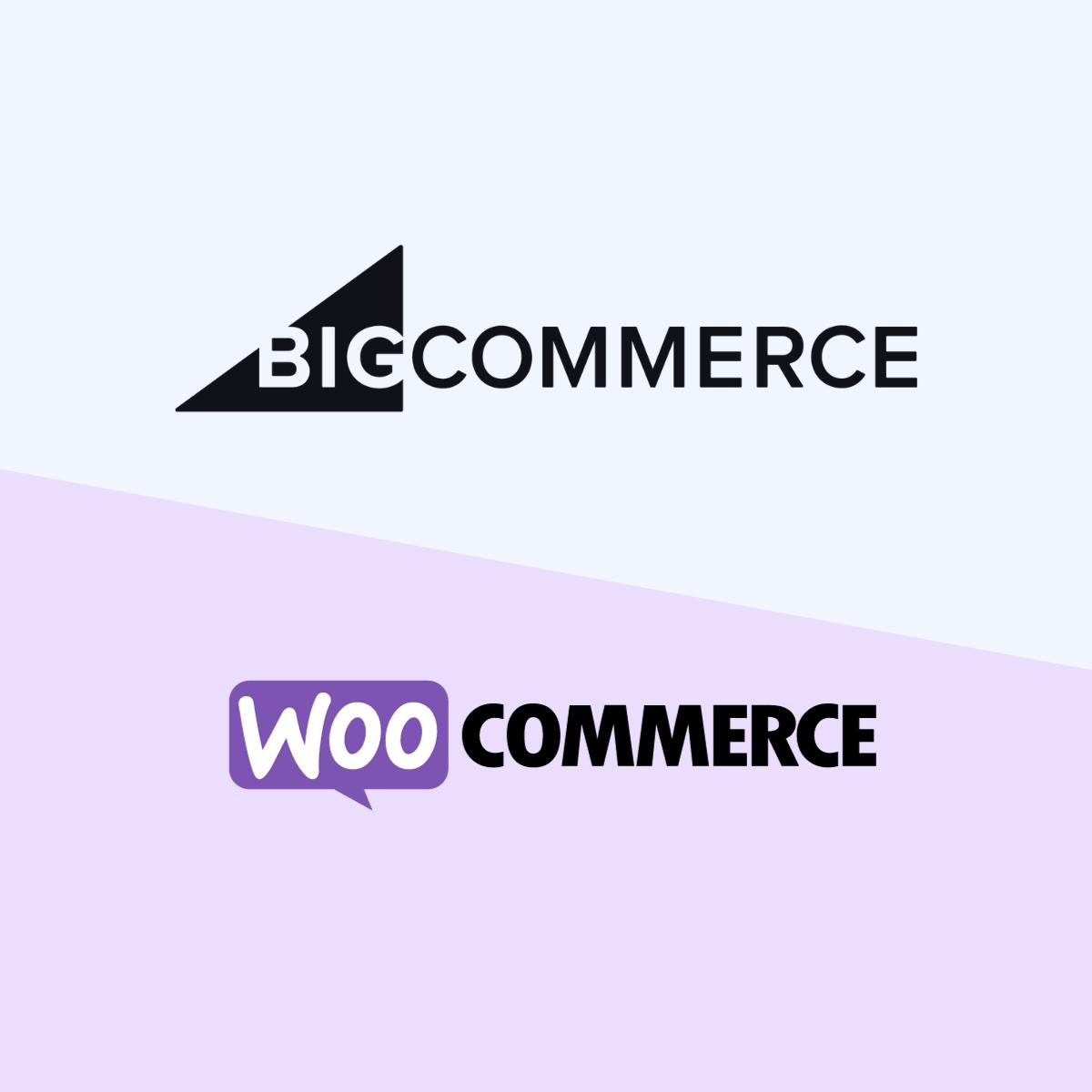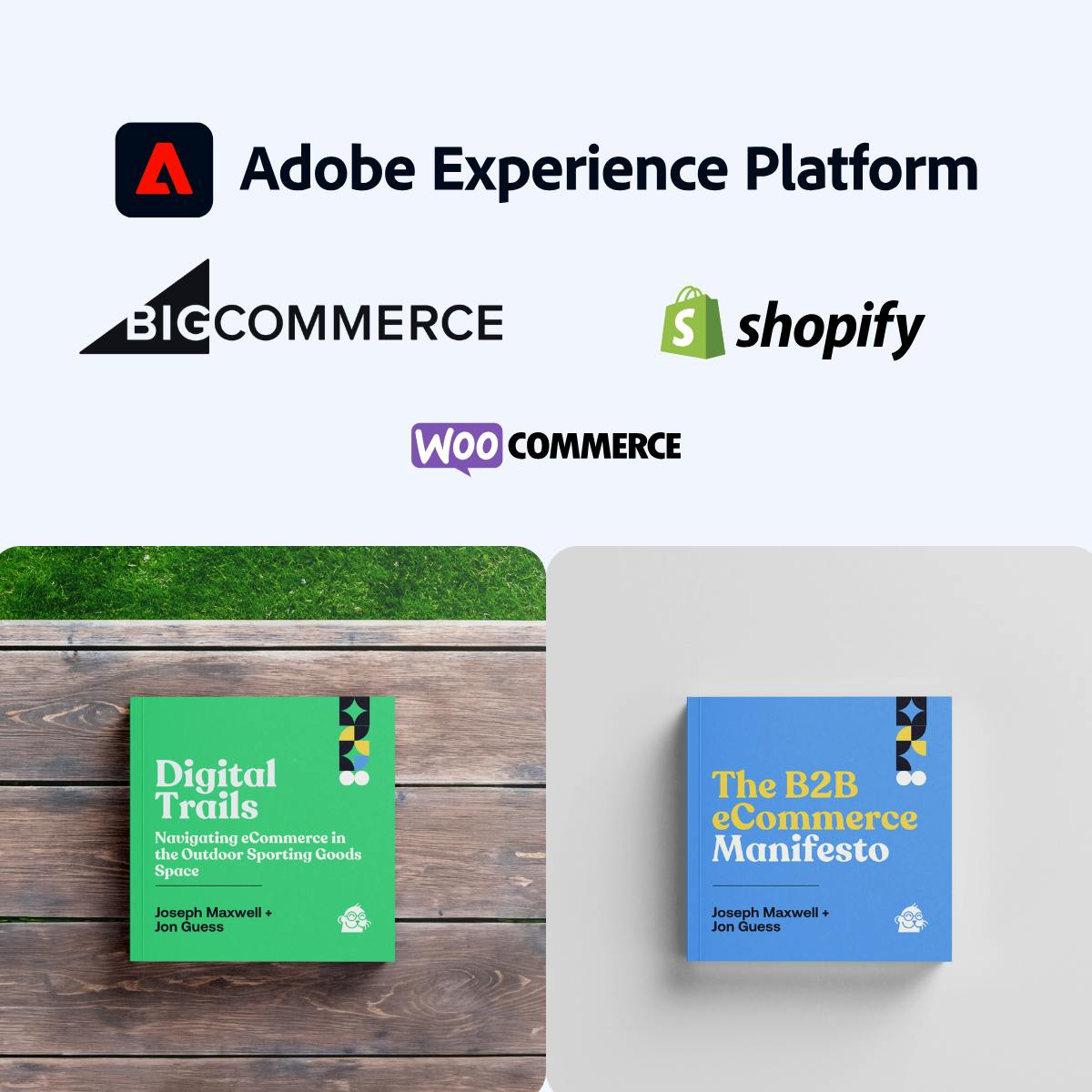
WooCommerce or BigCommerce?
This condensed guide gives you ultimate confidence to determine the best fit for your website going forward.
Are you ready for an honest comparison of these two platforms?
You are likely to be a representative of one of the six million-plus websites that utilize WooCommerce. This is testimony to the flexibility that WooCommerce provides. WooCommerce represents an easy pathway to go from the ubiquitous WordPress content platform to enable eCommerce capabilities. However, is it possible that this platform also brings along a ceiling?
We set out to answer this question in our exploration of WooCommerce as we evaluate over 100 features in comparison to BigCommerce. We invested many hours to bring you answers and help you make the best decision for your destiny. Is WooCommerce the best? Will BigCommerce serve us better?
Our freely downloadable book answers this question.
Why BigCommerce?
Software-as-a-Service (SaaS) has gained tremendous popularity with merchants in recent times. Merchants are looking for a stable website that won't "go down", all with minimal maintenance costs. SaaS generally delivers on these promises.
The bigger question ends up being: which SaaS platform? Shopify is often considered, but it has several significant detractors. BigCommerce is regularly our choice as it's highly flexible yet retains the security and maintainability of a SaaS platform. The Gartner Magic Quandrant names BigCommerce as a Challenger. Thus, BigCommerce is the platform we most regularly reach for.
Download Here
We have chosen to put this material in a freely available (no email required) ebook because this gives us the flexibility to present the content in an easily digestable format. Please download and reference at your leisure.

The Comparison
This high-level view of BigCommerce and WooCommerce will help you understand the value that both platforms bring.
What about plugins? You'll notice many items in the feature lists below mention "Plugin necessary". On the surface, a plugin satisfies the requirement, let's install it and move on? This can work for basic websites, but starts running into challenges as a website grows. If a feature is included natively, generally speaking, this means it will be:
- built to a higher standard because it's used by more merchants
- maintained and kept up to the latest guidelines through version upgrades
- supported by the SLA you have with the platform
None of these points are universally present for plugins. A developer might build a plugin, but then they move onto another phase of life—and the plugin is no longer supported.
Anytime "natively supported" is listed for a feature, you are in good hands.
BigCommerce | WooCommerce | |||
|---|---|---|---|---|
Cost to Operate (Yearly) | No costs due to upgrades or hosting—only licensing fee. | Might be surprised as to how much regular maintenance, upgrades, and deployments costs. | ||
Build costs | $$$-- | $$$-- | ||
Platform Style | Hosted in the cloud—no concern over traffic rushes after sales email. | Hosted wherever you wish—but make sure you have enough horsepower to handle traffic rushes. | ||
Security | Handles almost all security, included in licensing fee. | You are responsible to maintain security. Plugins make this risky. | ||
Multiple storefronts | Good native capabilities, but products must have same price across websites (at this point). | Requires plugin to make functional. | ||
Ability to handle large influx of traffic | Outstanding. A 99.99% uptime guarantee. | It is up to you to ensure website stays up through heavy traffic. | ||
Native feature support | Major functions are natively included. Apps are available to fill in additional requirements. | Many aspects need a plugin: many of which are not well supported. |
BigCommerce | WooCommerce | |||
|---|---|---|---|---|
Pre-orders | Natively supported | Additional plugin needed | ||
Downloadable Products | Natively supported | Natively supported | ||
Gifting | Natively supported | Plugin needed | ||
Rich attribute types (product specifications) | Only text-entry fields. | Different types of values allowed. | ||
Price Lists | Natively supported | Natively supported | ||
Product Relationships | Automatic or manual associations—only one type. | Cross-sells, up-sells and related products. | ||
Category permissions | Per customer group | Per customer group | ||
Auto-assembled categories | Associated with brand | By product type, category, vendor, tag, etc. | ||
Content Builder | Drag/drop interface baked into the frontend. | Rich editor in the admin panel. | ||
Inventory Quantity Thresholds | Natively Supported | Natively Supported | ||
Backorders | No backorders | Natively supported |
BigCommerce | WooCommerce | |||
|---|---|---|---|---|
Frontend Impersonation | Natively supported | Paid plugin necessary | ||
Customer Groups | Natively supported | Paid plugin necessary | ||
Custom Fields | Natively supported (B2B) | Natively supported | ||
Wishlists | Natively supported | Natively supported |
BigCommerce | WooCommerce | |||
|---|---|---|---|---|
Order Address Autocomplete | Natively supported | Plugin necessary | ||
Multi-address orders | Natively well-supported | Plugin necessary | ||
Shipping Methods | Natively supported—ShipperHQ integration | Plugins necessary | ||
Currency Handling | Natively well-supported | Plugin necessary | ||
Return Authorizations | Natively supported | Plugin needed | ||
Resend order email | Natively supported | Natively supported | ||
Order view extensibility | Can add new windows, API support to rebuild | Open-source, so reasonably easy to change | ||
Custom Shipping Rates (Admin) | Natively supported | Plugin necessary | ||
Order view extensibility | Extension points and API to rebuild view if necessary. | Everything can be changed to a minute level |
BigCommerce | WooCommerce | |||
|---|---|---|---|---|
Address Management | Natively supported | One user per company, not supported | ||
Payment Method Restrictions | Natively supported | Not controllable per company | ||
Order approvals | Natively supported for junior buyer to pass order to senior buyer to purchase | Not supported | ||
Pay on account/terms | Natively supported, including paying invoices online | Not supported | ||
Quick Order | Natively well-supported | Plugin necessary | ||
Sales staff assignment | Natively supported | Plugin necessary | ||
Ordering lists | Natively supported | Plugin necessary |

Our other comparisons
This isn't all we've done, check out what else will help you make a more informed decision.
An Introduction to SwiftOtter
Excellence in Ecommerce Experiences—since 2012.
As you can see with this guidebook, SwiftOtter believes in education and enablement (we have also built a significant training practice). Getting into a full-site migration may seem scary.
But with us at SwiftOtter, it's not. We will walk you through the process you will read about in this quickstart guide.
- We learn the key points of your needs and give you a rough order of magnitude for cost and timeline.
- We enter a paid discovery to understand what needs to be built: the scope.
- Once we agree on the scope (price), we begin work.
- We involve you through the development process to ensure it's exactly as you need.
SwiftOtter is a Certified BigCommerce Partner. We are also a Commerce-specialized Adobe Partner. We know the best of both worlds and have put this knowledge into building this quickstart guide for you.

